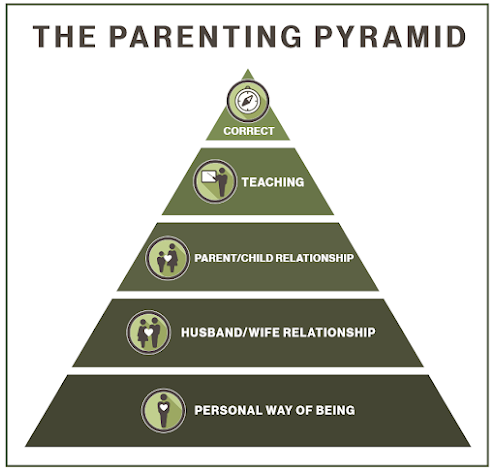Tell Them How They Feel? – Nurture
Wait? Wasn’t I supposed to tell my kids how I feel? Wasn’t I supposed to give them a piece of my mind when I don’t like their reactions and behaviors?
Nope. Well, not initially anyway.
I recently heard something about Emotion Coaching and when I
did, it honestly sounded kind of “woo, woo” to me initially. Do we really need to
validate our kids’ feelings all the time? Sometimes it’s made me wonder if it
will make them soft or unwilling to listen unless their feelings are validated
regardless of whether they are reasonable or not. It reminded me of Neil Miller, the stepfather of Charlie, in the classic movie The Santa Claus. Wasn’t he kind
of creepy? I don’t want to be creepy. I just want to keep it real.
Sometimes as a parent, I just want my kids to listen to me,
not question and behave without the need for explanation or special handling.
Sometimes I’m just tired and want them to perform or obey because I said so. Don’t
we all have those moments?
So, when my young daughter runs screaming across the house refusing to give back her sister's bracelet and hiding from me when I try to get her and get it back so everything can return to the quiet and calm I was hoping for. Wait, a minute. It was never quiet and calm but perhaps more like returning to my comfort level of noise and chaos? I wanted to rip the bracelet out of her hand, return it to my older daughter, and put her in her room so I didn’t have to hear her screams. I didn’t want to watch her spoiled-looking tantrum. So, those are probably my natural instincts when I’m tired and really want my kids to just be nice to me. Do you ever have those days? Maybe I feel like the kids sometimes and just want to be left alone! Clearly, I could use some help, and maybe I shouldn’t be so closed-minded to this “Emotion Coaching” thing. So I decided to give it a try instead of resorting to my natural, tired momma mode.
Reviewing what I had learned, this is what I did instead and
it WORKED!
The same event happened but instead of feeling like telling
my younger daughter she was spoiled, I decided to get on my knees and talk to
her while she was as far under the kitchen table as possible and was firmly
grasping the bracelet she took without asking. I said,
“You really like that bracelet don’t you?” Here comes the glory moment… Instead
of screaming or defiantly grunting as I tried to wrestle the bracelet back from
her (I’m sure it would have been one of those proud parent moments everyone
always talks about!), she became less defensive and said, “Yeah”. I then
continued,
Me: “You really want that bracelet for yourself, don’t you?”
Daughter: “Yeah, I really like it.”
Me: “I can tell you really like it. I wish you could have it
but if you take it, your sister will be sad because it’s hers. Can you come out and
give it back to her?
Daughter: “Yeah”
Me: “Can you please ask your sister next time before you take her
things?”
Daughter: Nods
Okay, what just happened? I’m definitely going to try this
again. Maybe I am more open to validating my kids' emotions and it turns out, I
should be. According to Manhattan Psychology Group it has several benefits
including but not limited to the example I shared with my daughter.
“How does validation help?
Validation helps de-escalate emotionally-charged situations while allowing your child to feel heard, understood, and accepted. When children
are validated, they experience a reduction in the intensity of their emotions.
Reducing the intensity of the emotion allows them to move through the meltdown
faster and it opens your child up to problem-solving or pushing through a
difficult situation or task. Your child is better able to decide what to do
next, rather than letting the emotion drive the behavioral response.
Validation teaches children to effectively label their own
emotions and be more in tune with their bodies, thereby increasing emotional
intelligence. When children can say, “I’m feeling angry” or “I’m so
frustrated,” they are better able to effectively communicate their internal
experience to the people around them, rather than lashing out with words,
acting aggressively, or having a tantrum. When they are able to communicate
their feelings in this way, the adults around them are more likely to remain
calm and offer help. This allows children to feel more accepted and supported,
which strengthens relationships and promotes healthy self-esteem and
self-worth.
Validation helps children develop frustration tolerance. Many children can become frustrated when working on a difficult or tricky task. When you validate how hard it is, and praise your child for sticking with it, they are more likely to persist.
Lastly, validating children helps them feel more compassion
and empathy towards others, which can enhance the quality of their
relationships with others.”
Let’s also take some tips from Sadness when she uses emotion
coaching with Bing Bong in the movie Inside Out. Take a minute and watch:
So, I’ve been practicing this technique of acknowledging
emotions and validating them first. It’s amazing. It takes the fight out of my
kids and they seem to open up and be more receptive. Now, if I thought about
it, I’m sure it would probably work on me when I was feeling upset. It
seems when we treat our kiddos like real people, acknowledging, listening,
validating, and respecting them may actually go a long way towards resolving
conflict and getting in some real meaningful teaching. I’ll take that over the
less than graceful chasing and wrestling any day!
Resources:
Hollywood Pictures (Producer), Pasquin, J. (Director). 1994. The Santa Clause (Motion Picture). United States: Walt Disney Pictures.
2. Rivera, J. (Producer), Docter, P. (Director).
2015. Inside Out (Motion Picture). United States: Walt Disney Studios Motion
Pictures.
3. Areizaga, M. (n.d.). Manhattan Psychology Group, PC. Validation: The Parenting Tool That Helps Kids Learn Emotion Regulation Skills. Retrieved from:



Comments
Post a Comment